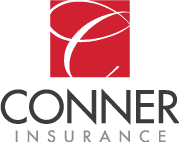Small Business Professional Liability Insurance: Safeguarding Your Professional Services
Running a small business is an exciting venture but comes with inherent risks. One critical risk for professional service providers is the potential for lawsuits in their work. Professional liability insurance, also known as errors and omissions insurance (E&O), protects you from such claims' financial and reputational damage. Without this coverage, a single lawsuit could cripple your finances and even force you to shut down.
The following sections will dive deep into professional liability insurance for small businesses. We'll explore what it is, who needs it, what it covers, and how to choose the right professional liability policy.
What is Professional Liability Insurance?
Professional liability insurance safeguards your business against claims of negligence, errors, or omissions committed while performing your professional services. Imagine an accountant accidentally miscalculating a client's taxes, resulting in significant penalties. Or a consultant providing flawed marketing advice that leads to a client's financial losses. In these scenarios, the client could sue your business for damages. Professional liability insurance steps in to cover your legal defense costs, settlements, and judgments up to your policy limits.
The absence of professional liability insurance exposes your business to substantial financial risk. Legal battles are notoriously expensive; even unfounded lawsuits can drain your resources.
Other consequences of not having professional liability coverage can include:
- Financial strain from legal fees and potential settlements
- Damage to your professional reputation
- Loss of clients and revenue
- Difficulty obtaining future business contracts
For more information, read our guide, Understanding Coverage in Professional Insurance.
Who Needs Professional Liability Insurance?
Many professions rely on providing expert advice or services, making them prime candidates for professional liability insurance.
Here's a breakdown of some common professions that benefit from professional liability coverage:
- Consultants: Management consultants, financial consultants, marketing consultants, and IT consultants–all face the risk of errors in their recommendations, leading to client losses.
- Accountants and Tax Preparers: Mistakes in tax filings or financial advice can have serious consequences for clients. Professional liability insurance provides peace of mind.
- IT Professionals: Data breaches, system failures, or even security vulnerabilities caused by your services can lead to costly lawsuits.
- Architects and Engineers: Design flaws or structural failures can result in significant financial losses for clients. Professional liability insurance offers protection.
- Lawyers: While legal malpractice insurance is a separate coverage, professional liability insurance can protect lawyers in non-legal areas like breach of contract or missed deadlines.
- Designers: Graphic designers, web designers, or product designers could face claims for plagiarism, copyright infringement, or faulty designs.
- Real Estate Agents: Errors in property disclosure or negligent advice can lead to lawsuits from buyers or sellers.
These are just a few examples. If your business provides professional services and carries the risk of errors or omissions impacting your clients, professional liability insurance is a wise investment.
Coverage Details
Professional liability insurance plays a crucial role in safeguarding your business from the financial burden of claims arising from professional negligence or mistakes. It ensures you can focus on running your business with peace of mind.
Professional liability insurance covers two key areas: legal defense and claim settlements.
- Legal defense costs: This includes attorney fees, court costs, and other expenses incurred in defending a lawsuit, regardless of whether you are found negligent. Even if the lawsuit is ultimately dismissed, the legal expenses can be substantial.
- Damages awarded in a lawsuit: If you are found liable, your insurance will cover the amount you owe the plaintiff up to your policy limits. This helps prevent a single lawsuit from jeopardizing your business's financial stability.
It's important to understand coverage limitations to ensure you have the right protection in place:
- Policy limits: These dictate the maximum amount your insurance will pay for a claim. Choosing appropriate policy limits is crucial to ensure adequate coverage for potential claims.
- Deductibles: You may have to pay a deductible (out-of-pocket expense) before your insurance kicks in. Discussing deductibles with your insurance agent can help you find a balance between affordability and coverage.
Excluded Coverage
- Intentional misconduct: The insurance won't cover situations where you deliberately provided incorrect advice or acted with malicious intent.
- Dishonesty: Fraudulent acts are not covered.
- Criminal charges: Professional liability insurance does not cover criminal fines or penalties.
Understanding these coverage details and exclusions is essential when choosing a professional liability insurance policy that meets your specific needs and risk profile. Consulting with an experienced insurance agent can help you navigate these details and tailor your coverage accordingly.
Hypothetical Examples
Professional liability insurance can be a lifesaver for your small business, protecting you from unforeseen financial burdens and reputational damage.
Here are a few scenarios illustrating how this crucial coverage can safeguard your business:
- Marketing Consultant: A marketing consultant develops a social media campaign for a clothing boutique. Unfortunately, the campaign uses copyrighted images without permission. The photographer sues the boutique for copyright infringement.
- Professional liability insurance can cover the boutique's legal defense costs and any settlement reached with the photographer, preventing a single lawsuit from jeopardizing the business's financial stability.
- IT Professional: An IT professional installs a new network system for a small law firm. However, a security flaw allows hackers to access the firm's confidential client data. The law firm sues the IT professional for negligence.
- Professional liability insurance can protect the IT professional from the financial repercussions of this lawsuit, covering legal defense costs and potential settlements and preventing the lawsuit from causing significant financial hardship.
- Architect: An architect designs a new office building for a company. A structural flaw is discovered during construction, leading to substantial repairs and delays. The company sues the architect for negligence.
- Professional liability insurance can provide the architect with critical financial support, covering legal defense costs and potentially contributing to a settlement with the company, mitigating the financial impact of the lawsuit.
- Accountant: An accountant makes a mistake while preparing a client's tax return, resulting in the client receiving significant tax penalties from the IRS. The client sues the accountant for negligence.
- Professional liability insurance can assist the accountant with legal defense costs and potentially contribute to a settlement with the client, helping the accountant navigate this challenging situation without facing the full financial burden alone.
These are just a few examples, and the specific situations covered will vary depending on your industry and the specific wording of your policy. This effectively demonstrates how professional liability insurance can safeguard your business from the financial and reputational damage associated with professional negligence claims.
Choosing the Right Policy
Selecting the right professional liability insurance policy requires careful consideration of several factors:
- Coverage limits: This determines the maximum amount your insurance will pay for a claim. Consider the potential severity of claims you might face and choose limits that offer adequate protection.
- Deductibles: A higher deductible typically means a lower premium. However, you must be prepared to pay the deductible out of pocket before your insurance kicks in.
- Exclusions: Carefully review the policy exclusions to ensure they align with your specific needs. Discuss any concerns with your insurance agent.
- Premiums: Compare quotes from different providers to find a policy that balances affordability with comprehensive coverage.
Working with an experienced insurance advisor can be invaluable in navigating the complexities of professional liability insurance. They can assess your specific risks and recommend suitable coverage options tailored to your business needs. Moreover, they can help you understand the intricacies of different policies, answer your questions, and provide clarity on any confusing terms or conditions. With their expertise and industry knowledge, they can also negotiate competitive rates on your behalf, ensuring you get the best value for your insurance investment.
Here are some additional tips for evaluating and comparing professional liability insurance policies:
- Read the policy wording thoroughly and understand the terms and conditions.
- Ask questions and clarify any uncertainties you may have.
- Don't solely focus on price – consider each policy's overall value and protection.
By carefully considering these factors and seeking professional guidance, you can choose a professional liability insurance policy that provides the necessary peace of mind and protects your small business from unforeseen circumstances.
Factors Affecting the Cost of Professional Liability Insurance
The cost of professional liability insurance is not a fixed expense but rather varies depending on several key factors. Understanding these factors can empower you to make informed decisions when choosing a policy and potentially optimize your insurance costs.
Here's a breakdown of the key elements that influence the cost of professional liability insurance:
- Industry: Certain industries are inherently more prone to claims, leading to higher premiums.
- Revenue: Businesses with higher revenue typically face higher potential financial losses in lawsuits, resulting in costlier insurance.
- Claims history: A history of claims can significantly impact your premium.
- Coverage limits and deductibles: Higher coverage limits and lower deductibles generally translate to higher premiums.
- Years in business: Established businesses with a proven track record may qualify for lower premiums.
- Risk management practices: Implementing strong risk management practices can demonstrate a proactive approach to mitigating risks, potentially leading to lower premiums.
By working closely with an experienced insurance advisor, you can find ways to optimize your coverage and stay within your budget, ensuring that you have the protection you need without overstretching your financial resources.
The Benefits of Combining Professional and General Liability Insurance
While professional liability insurance safeguards your business against claims of professional negligence, it's important to remember that it doesn't cover everything. General liability insurance is another crucial piece of the puzzle, protecting your business from a broader range of potential liabilities.
General liability insurance typically covers:
- Bodily injury: This includes medical expenses and lost wages for third parties who suffer injuries due to your operations.
- Property damage: This covers the cost of repairing or replacing property damaged by your business activities.
- Personal and advertising injury: This protects you from claims of libel, slander, copyright infringement, and other non-physical injuries.
Having both professional and general liability insurance offers a comprehensive safety net for your small business:
- Multi-faceted protection: Together, these policies cover a more comprehensive range of potential claims, minimizing your financial exposure and safeguarding your business assets.
- Peace of mind: Knowing you have comprehensive coverage allows you to focus on running your business with greater peace of mind, confident that unexpected incidents won't derail your success.
- Enhanced client confidence: Demonstrating you have appropriate insurance coverage can instill trust and confidence in your clients, potentially leading to stronger business relationships.
For maximum protection, consider consulting with an insurance professional to explore the ideal combination of professional and general liability insurance policies tailored to your specific business needs and risk profile.
Your Trusted Partner for Professional Liability Insurance
At Conner Insurance, we are an organization dedicated to serving our clients with highly personalized insurance solutions. We understand that every business is unique and take a holistic approach to assess your specific needs and risk profile.
Our team of experienced and innovative advisors is passionate about providing comprehensive risk management solutions, including professional liability insurance and general liability insurance. We understand the potential impact of lawsuits on small businesses and are committed to helping you mitigate risk and protect your financial security.
What sets us apart?
- Custom-tailored plans: We don't believe in one-size-fits-all solutions. We work closely with you to design an insurance plan that aligns with your needs and budget.
- Risk management expertise: Our team has extensive knowledge of various risks faced by businesses, allowing us to offer comprehensive coverage and proactive risk mitigation strategies.
Don't let a single incident jeopardize your business success. Contact us online or call us at (317) 808-7711 to speak with a trusted advisor and explore how Conner Insurance can help you secure the right coverage for your peace of mind.
Ensure your protection with professional coverage today.
Frequently Asked Questions
What's the difference between professional liability and general liability insurance?
Professional liability insurance covers claims related to negligence, errors, or omissions in your professional services. General liability insurance, on the other hand, covers third-party claims of bodily injury, property damage, or advertising injury.
How much professional liability insurance do I need?
The amount of coverage you need depends on your industry, business size, and risk tolerance. Consider your potential exposure to claims and a lawsuit's financial impact on your business. An insurance advisor can help you assess your needs and recommend appropriate coverage limits.
Can I get professional liability insurance if I'm just starting my business?
Yes, you can obtain professional liability coverage even as a startup. In fact, it's wise to have insurance in place from the beginning to protect your budding business from potential claims.
How do I file a professional liability insurance claim?
If you face a potential claim or lawsuit, contact your insurance advisor immediately. They will guide you through the process of filing a claim and provide support in your legal defense. Be prepared to provide documentation related to the incident and cooperate fully with your insurer.












